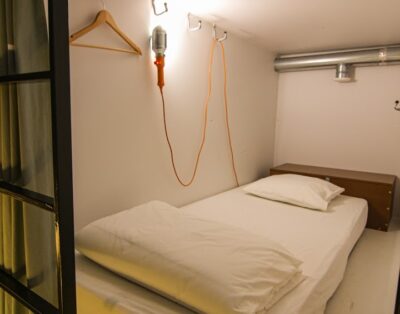Tips for Renting a House with a Family in UK
There are many different types of rental properties available, from apartments to houses, and each comes with its own set of pros and cons. It’s important to research the rental market in your area, including average rents and the types of properties available, to ensure you find a property that meets your needs and budget.
Budgeting for your move is also an important consideration when renting a house. In addition to the monthly rent, you will need to factor in other costs such as a deposit, utility bills, and moving expenses. It’s important to create a budget and stick to it to avoid financial stress and ensure a smooth transition for your family.
Understanding the UK Rental Market
When it comes to renting a house in the UK, it’s important to understand the rental market to make the best decisions for your family. Here are some key things to keep in mind:
Average Rent Prices
The average rent prices in the UK vary depending on the location and type of property. According to recent data, the average monthly rent for a family home in the UK is around £1,000 to £2,000. However, this can be higher or lower depending on the area, size, and condition of the property.
Popular Areas for Families
If you’re looking for a family-friendly area to rent a house in the UK, there are many options to consider. Some of the popular areas for families include:
- Bristol: Known for its excellent schools, green spaces, and family-friendly neighborhoods.
- Edinburgh: Offers a mix of city living and outdoor activities, with plenty of parks and playgrounds.
- Oxford: Home to some of the best schools in the UK, as well as historic sites and cultural attractions.
- Surrey: A popular choice for families due to its excellent schools, beautiful countryside, and easy access to London.
Types of Available Properties
The UK rental market offers a wide range of properties to suit different family sizes and lifestyles. Some of the most common types of available properties include:
- Terraced houses: A popular choice for families due to their affordability and space.
- Semi-detached houses: Offers more space and privacy than a terraced house, but can be more expensive.
- Detached houses: Offers the most space and privacy, but can be the most expensive option.
- Flats/apartments: A good option for smaller families or those on a budget, but may not offer as much space.
It’s important to consider your family’s needs and budget when choosing the type of property to rent.
Budgeting for Your Move
Moving to a new house with a family can be a daunting task, and one of the most important things to consider is the budget. In order to ensure a smooth transition, it is important to plan ahead and budget accordingly. Here are some tips to help families budget for their move.
Rental Deposits and Fees
When renting a house, there are several fees and deposits that families need to be aware of. These can include a security deposit, which is usually equal to one month’s rent, as well as an administration fee and a reference check fee. Families should also be aware of any additional fees that may be charged, such as a pet deposit or a cleaning fee.
Monthly Expenses
Once a family has secured a rental property, they will also need to budget for monthly expenses. These can include rent, utilities, groceries, transportation, and other household expenses. It is important to research the average cost of living in the area where the family will be living in order to get an accurate idea of what these expenses will be.
According to a search result, the average cost of living for a family of four in the UK is between £4,000 and £4,500 per month, including rent. However, this amount can vary depending on factors such as location, housing costs, utilities, transport, healthcare, groceries, education, and taxes.
Saving Tips for Families
Moving to a new house can be expensive, but there are several ways that families can save money. One way is to shop around for the best deals on utilities and other household expenses. Families can also save money by cooking at home instead of eating out, and by using public transportation instead of owning a car.
Another way to save money is to plan ahead and budget for unexpected expenses. Families should set aside some money each month for emergencies, such as car repairs or medical bills.
In conclusion, budgeting for a move can be a challenging task, but with careful planning and research, families can ensure a smooth transition to their new home. By being aware of rental deposits and fees, monthly expenses, and saving tips, families can budget effectively and avoid financial stress during the moving process.
Finding the Right Property
When looking for a house to rent with a family in the UK, finding the right property is crucial. Here are some factors to consider:
Schools and Education
Families with children should prioritize finding a property that is located near good schools. Research the schools in the area and their Ofsted ratings to ensure that your children will receive a quality education. Some websites, such as Rightmove, allow you to search for properties based on their proximity to schools.
Proximity to Amenities
Another important factor to consider is the proximity of the property to amenities such as shops, supermarkets, and parks. Having these amenities nearby can make life easier and more convenient for families. Look for properties that are located in areas with good access to local amenities.
Transport Links
Good transport links are also important when renting a property with a family. Consider the distance to public transport links such as bus stops, train stations, and motorways. This can make it easier for parents to commute to work and for children to travel to school or other activities.
Overall, finding the right property is essential for families looking to rent in the UK. By considering factors such as schools, amenities, and transport links, families can find a property that meets their needs and makes their lives easier.
Legal Considerations
When renting a house with family members in the UK, there are some legal considerations that should be kept in mind.
Tenancy Agreements
It is important to have a written tenancy agreement when renting a house to family members. This agreement should clearly outline the terms of the tenancy, including the rent, the length of the tenancy, and any other conditions that apply. The tenancy agreement should also include the names of all tenants and the landlord, as well as the address of the property.
Tenant Rights and Responsibilities
Family members who rent a house have the same rights and responsibilities as any other tenant. This includes the right to a safe and habitable property, the right to privacy, and the right to be protected from discrimination. Tenants also have the responsibility to pay rent on time, keep the property clean and well-maintained, and respect the rights of other tenants and neighbours.
Deposit Protection Schemes
When renting a house to family members, it is important to protect their deposit. Landlords in the UK are required by law to protect their tenants’ deposits in a government-approved deposit protection scheme. This ensures that the deposit is safe and can be returned to the tenant at the end of the tenancy, as long as they have met the terms of the tenancy agreement. Landlords who fail to protect their tenants’ deposits can be fined and may be unable to evict their tenants.
In summary, renting a house to family members in the UK requires careful consideration of the legal implications. A written tenancy agreement, understanding of tenant rights and responsibilities, and protection of the deposit are all important factors to keep in mind.
Preparing to Move
Moving house can be a challenging task, especially when you have a family to consider. However, with proper planning and organization, the process can be made smoother and less stressful. Here are some tips to help you prepare for your move.
Packing and Organizing
Start packing as early as possible to avoid last-minute rush. Label each box with its contents and the room it belongs to. This makes it easier to unpack and organize your new home. Use sturdy boxes and packing materials to protect your belongings during the move. You can also consider hiring professional packers to do the job for you.
Notifying Utilities and Services
Before you move, make sure to notify your utilities and services providers of your change of address. This includes your gas, electricity, water, and internet providers. You should also inform your bank, insurance provider, and any other relevant organizations of your new address. This ensures that important documents and bills are sent to the correct address.
Change of Address Checklist
Create a checklist of all the organizations and people that need to be notified of your change of address. This can include your employer, schools, doctors, and other service providers. You can use online forms to update your address with the DVLA, HMRC, and the electoral roll. Don’t forget to update your address on your driving license and passport.
By following these tips, you can make your move with your family a lot smoother and less stressful. With proper planning and organization, you can settle into your new home quickly and start enjoying your new surroundings.
Settling In
After finding the perfect rental home for the family, it’s time to settle in and make it feel like home. Here are some tips to help make the transition as smooth as possible.
Community Engagement
Getting involved in the local community is a great way to settle in and make new friends. The UK has a strong sense of community, and there are plenty of opportunities to get involved in local events, clubs, and organizations. Joining a local sports team, volunteering at a community center, or attending a neighborhood block party are all great ways to meet new people and start feeling at home.
Safety Measures
When renting a home, safety should be a top priority. Make sure to check that all doors and windows have working locks and consider installing a security system. Smoke detectors and carbon monoxide detectors should also be installed and checked regularly. It’s important to have a plan in case of an emergency, such as a fire or break-in, so make sure everyone in the family knows what to do.
Home Customization
While renting a home comes with some limitations, there are still ways to make it feel like your own. Adding some personal touches such as family photos, artwork, or decorative pillows can make a big difference. If the landlord allows it, consider painting a room or adding some wallpaper to give it a fresh look. Adding some plants or flowers can also bring life to a space and make it feel more welcoming.
Overall, settling into a new rental home can take time, but with these tips, it can be a smooth and enjoyable experience.
Frequently Asked Questions
What are the legal requirements for renting a house to a family member in the UK?
There are no specific legal requirements for renting a house to a family member in the UK. However, it is recommended to have a tenancy agreement in place to avoid any misunderstandings or disputes. The agreement should clearly state the terms and conditions of the tenancy, including the rent, payment schedule, and duration of the tenancy.
How does renting to a family member affect tax obligations in the UK?
Renting a property to a family member can have tax implications for both the landlord and the tenant. Landlords must declare any rental income on their tax return, while tenants may be eligible for housing benefits depending on their income and circumstances. It is recommended to seek professional advice from a tax specialist to understand the tax implications of renting to a family member.
What should be included in a family tenancy agreement when renting out a property?
A family tenancy agreement should include the names of all tenants, the address of the property, the rent amount and payment schedule, the duration of the tenancy, and any other terms and conditions agreed upon by the landlord and the tenant. It is important to have a clear and concise agreement to avoid any misunderstandings or disputes.
Are there any benefits or drawbacks to renting a house to a relative on government assistance?
Renting a house to a relative on government assistance can have both benefits and drawbacks. On one hand, the tenant may be able to afford the rent with the help of government assistance, which can provide a steady source of income for the landlord. On the other hand, government assistance may not cover the full rent amount, and the landlord may have to accept a lower rent or risk losing the tenant.
Do UK landlord licensing requirements change when renting property to family members?
UK landlord licensing requirements do not change when renting property to family members. Landlords must comply with all the same legal requirements, including obtaining the necessary licenses and certifications, regardless of the relationship between the landlord and the tenant.
Can multiple unrelated individuals, such as friends, enter into a joint tenancy agreement for a house in the UK?
Yes, multiple unrelated individuals can enter into a joint tenancy agreement for a house in the UK. This is a common arrangement for students or young professionals who want to share living expenses. In a joint tenancy agreement, all tenants have equal rights and responsibilities, and the rent is usually divided equally among them.



